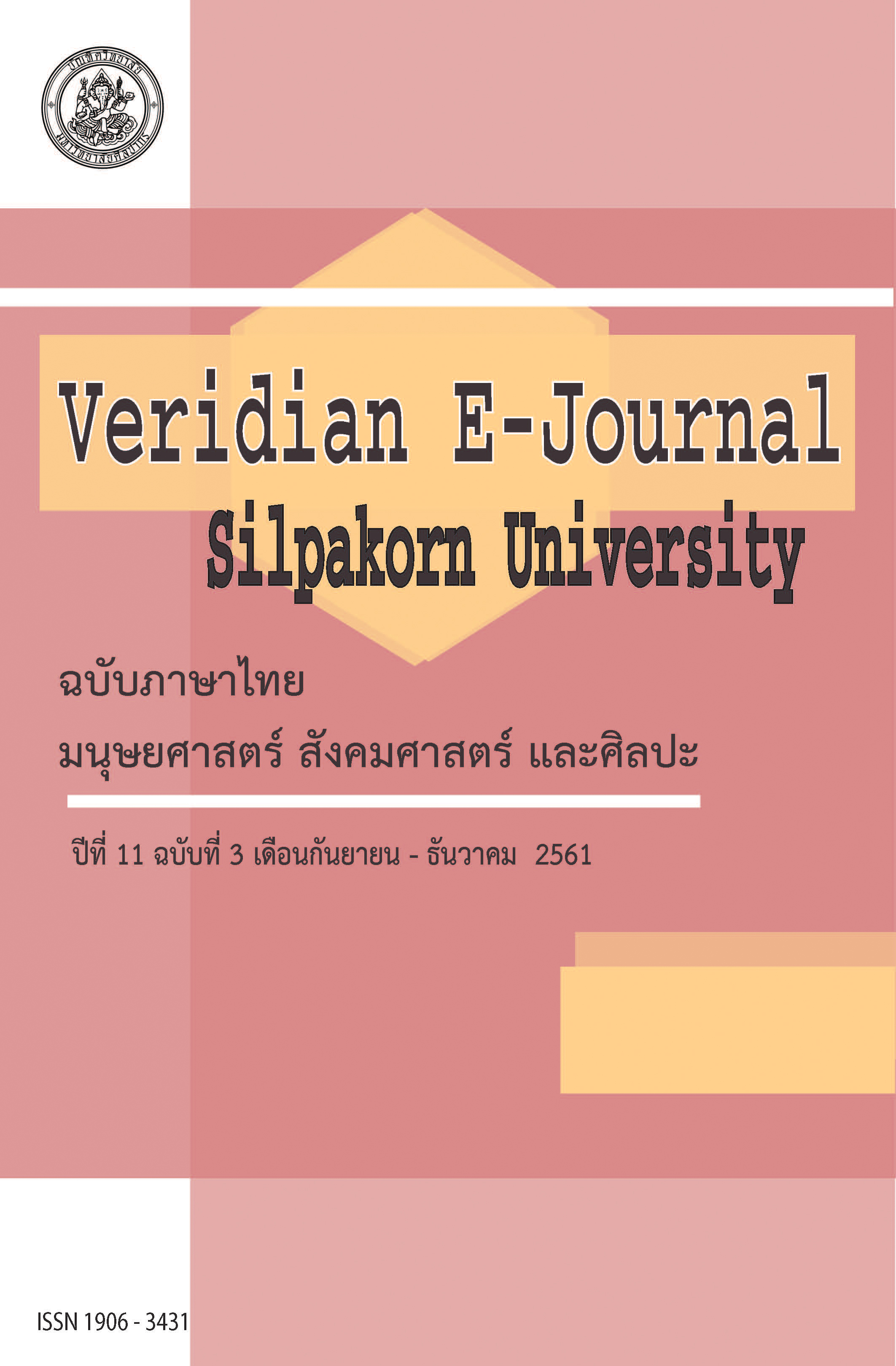โมเดลความสัมพันธ์เชิงสาเหตุของปัจจัยที่มีอิทธิพลต่อพฤติกรรมเนือยนิ่ง ของนักศึกษาระดับปริญญาตรีในประเทศไทย (A Causal Relationship Model of Factors Affecting Sedentary Behaviors in Undergraduate Students in Thailand)
Main Article Content
Abstract
การวิจัยครั้งนี้มีวัตถุประสงค์เพื่อศึกษาโมเดลความสัมพันธ์เชิงสาเหตุของปัจจัยที่มีอิทธิพลต่อพฤติกรรมเนือยนิ่งของนักศึกษาระดับปริญญาตรีในประเทศไทย โดยการตรวจสอบความสอดคล้องของรูปแบบความสัมพันธ์โครงสร้างเชิงเส้นของปัจจัยเชิงสาเหตุที่มีอิทธิพลต่อพฤติกรรมเนือยนิ่งของนักศึกษาระดับปริญญาตรีในประเทศไทยกับข้อมูลเชิงประจักษ์ กลุ่มตัวอย่าง จำนวน 466 คน ได้มาโดยการสุ่มหลายขั้นตอน (Multi-stage random sampling) เครื่องมือที่ใช้ในการวิจัยเป็นแบบสอบถามแบบมาตราส่วนประมาณค่า 5 ระดับ วิเคราะห์ข้อมูลการตรวจสอบความตรงของโมเดลด้วยโปรแกรมลิสเรล (LISREL)
ผลการวิจัยพบว่าโมเดลมีความสอดคล้องกับข้อมูลเชิงประจักษ์ มีค่า Chi-square = 19.837, df = 14, p = 0.135, GFI = 0.991, AGFI = 0.970, RMR = 0.018, RMSEA = 0.030 ตัวแปรในโมเดลสามารถอธิบายความแปรปรวนของพฤติกรรมเนือยนิ่งของนักศึกษาระดับปริญญาตรีได้ร้อยละ 16.4 โดยตัวแปรพฤติกรรมเนือยนิ่งของนักศึกษาระดับปริญญาตรีได้รับอิทธิพลทางตรงจากตัวแปรปัจจัยทางจิตวิทยาและปัจจัยการสนับสนุนทางสิ่งแวดล้อมเป็นลบอย่างมีนัยสำคัญทางสถิติ และได้รับอิทธิพลทางตรงจากตัวแปรปัจจัยการสนับสนุนทางสังคมเป็นบวกอย่างมีนัยสำคัญทางสถิติ มีค่าอิทธิพลเท่ากับ - 0.171, - 0.250 และ 0.382 ตามลำดับ
The purpose of this research was to study a causal relationship model of factors affecting sedentary behaviors in undergraduate students in Thailand. By examining the correlation of the linear relationship model of causal factors affecting the sedentary behavior of undergraduate students in Thailand with empirical data. There were 466 samples. The research tool was a 5-point scale questionnaire. The causal model was analyzed and validated using LISREL.
The results showed that the model fit statistics were Chi-square = 19.837, df = 14, p = 0.135, GFI = 0.991, AGFI = 0.970, RMR = 0.018, RMSEA = 0.030. The variables in the model account for 16.4 percent of sedentary behaviors of undergraduate students. The variables of the undergraduate behavior were affected directly by psychological factors and supporting environment factors. It was significantly negative. And the direct affected of positive social support factor was statistically significant. The affected values were - 0.171, - 0.250 and 0.382, respectively.
